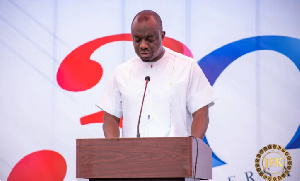- ADDI SELF
- Akomapatrendz
- Alwgh
- Attractive Mustapha NII Okai Inusah
- BigAyehMedia
- Black Hyacinth
- Dangote The Blogger
- Dessert Bloggers
- Dprah
- Ebanbo
- Ella Okunmwendia
- Geniuskojo
- GH Kasa
- Gnews
- Gnewspage
- Gospel News GH
- HypeLords GH
- Kasoa Blogger
- Knews
- Lifeofkiki
- Lizzy1
- Mercyma
- MilanoTheBlogger
- Mira
- Musings of a SHOE
- MyHairDo
- Mystic Wanderer
- Rocky55
- ROSIS
- Showbiz Blogger
- Shyblogafrica
- SirIshmael93
- Talentz MEDIA
- The Big E
- Todays Vibes
- TrenderHQ
- Ugly Game News
- Ummis Vlogs
- Viral Lifestyle
- Xorlali
Dangote The Blogger Blog of Wednesday, 19 October 2022
Source: DANGOTE THE BLOGGER
Ghana's cedi now the world's worst-performing currency as Kenya's shilling also struggles

Ghana's cedi now the world's worst-performing currency as Kenya's shilling also struggles
The value of the currency in use in the west African nation's capital, Accra, dropped as low as 11.2750 cedis to one dollar after initially falling by as much as 3.3%. That brought its total losses for the year to above 45 percent, the highest percentage among all 148 currencies.
As investors continued to restrict the flow of foreign capital into the West African nation of Ghana on Monday, the value of the Ghanaian cedi plummeted, making it the worst-performing currency in the world so far in 2018.
The currency of the country that is the world's second-biggest producer of cocoa dropped as high as 3.3% against the dollar before stabilizing at 11.2750/$ in the country's capital, Accra.
That brought its total losses for the year to more than 45 percent, the highest percentage among the 148 currencies that Bloomberg tracks.
Since the beginning of the year, there has been a quickening in the pace of the cedi's depreciation.
Ghana has been in formal negotiations with the International Monetary Fund for an extended credit facility for the past two months, with the hope of receiving loans totaling $3 billion over the course of three years. These negotiations have been going on for the past two months.
The Ghanaian government has asked the International Monetary Fund (IMF) for billions of dollars in bailouts, but the IMF has been slow to comply since they require a debt sustainability plan first.
Simon Quijano-Evans, an economist at Gemcorp Capital located in London, stated in an emailed comment that "investors were hoping to hear something in Washington last week but regrettably nothing surfaced."
He was referring to the week-long IMF annual sessions that concluded on October 16. "There was complete and utter silence."
The nation turned to the Foreign Monetary Fund for assistance after it was cut off from the Eurobond market earlier this year and after domestic reforms, such as reducing 2022 discretionary expenditures by up to 30%, were unable to stop a decline in the value of its international bonds.
The spread that investors want above the yield on US Treasuries in order to retain Ghana paper has increased to 2,669 basis points.
According to data provided by the Central Securities Depository Ghana, the percentage of outstanding government and corporate bonds that were held by foreign investors dropped to a record low of 12.3% at the end of August, from a 2022 peak of 17.3% in April. This represents a new all-time low.
According to the indexes that are tracked by Bloomberg, the average yield on the country's domestic bonds is currently trading at 41.9%, making it the highest among developing countries.
At the end of September, Ghana's gross international reserves had fallen to $6.6 billion, which is just enough to fund imports for little less than three months.
This is a decrease from the previous year's total of $10.7 billion, which covered over five months' worth of imports.
The value of the currency has surpassed the declines experienced by the Sri Lankan rupee, which has dropped nearly 45 percent against the U.S. dollar this year.
This comes as the nation is also working to get an IMF loan unfrozen after defaulting on previous obligations.
Ghana is hardly the only nation facing difficulties with its national currency. Because of this, Kenya has also been in the news recently.












